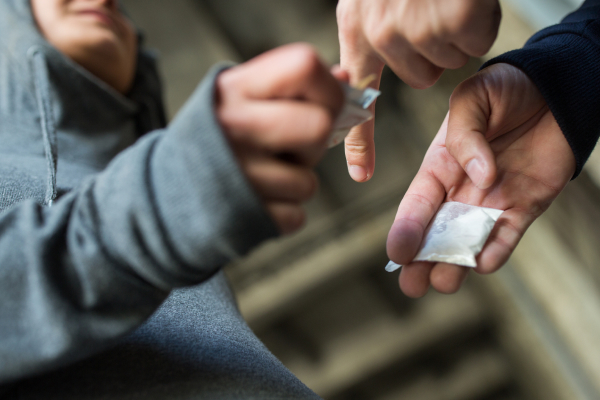
Drug trafficking is a major issue affecting many communities. This serious offense involves the illegal trade, distribution, and sale of drugs. Facing drug trafficking charges can be stressful and life-changing. Knowing the examples and scenarios of drug trafficking can help you assess the gravity of these charges.
At SoCal Criminal Defense Lawyer, we specialize in defending those accused of drug trafficking. We understand the complex nature of these cases. We aim to provide you with the knowledge and defense strategies to fight these charges.
Let's explore some common examples of drug trafficking to give you a clearer picture.
Drug trafficking covers the illegal sale, distribution, and transportation of controlled substances. It involves large quantities of drugs like cocaine, heroin, and other illegal drugs.
The penalties for drug trafficking convictions are severe. They often include lengthy prison sentences. Understanding the nature of drug trafficking charges is crucial for building a strong defense.
The Drug Enforcement Administration (DEA) is a key player in combating drug trafficking. They work with law enforcement agencies to track and dismantle trafficking operations. Despite their efforts, the illicit drug trade continues to thrive. Understanding your rights and the legal issues of drug trafficking can help you navigate these charges.
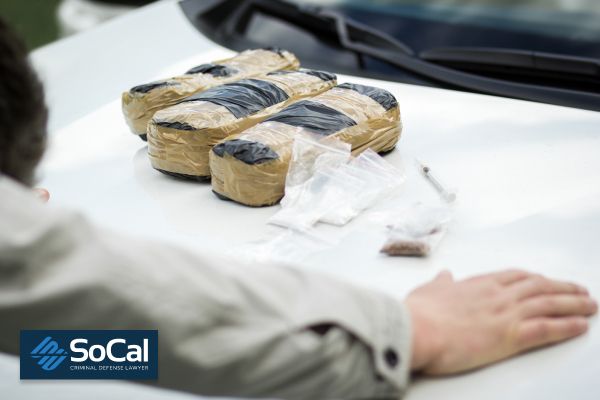
Drug trafficking involves the large-scale movement and sale of illegal drugs. This can include transporting drugs across state lines or international borders.
Traffickers often work in organized crime groups to distribute drugs widely. The penalties for trafficking are typically more severe due to the scale of the operation.
Distribution refers to the act of selling or delivering illegal drugs to others. This can happen at both the street level and at higher levels of the drug trade.
Unlike trafficking, distribution doesn't always involve large quantities of drugs. However, it is still considered a serious offense with significant legal consequences.
Drug possession involves having illegal drugs for personal use or distribution. Possession charges can vary based on the amount and type of drug.
Possession is generally less severe than trafficking or distribution. However, it can still result in serious penalties. Understanding the distinctions between these charges can impact your defense strategy.
Drug trafficking can take many forms. It may include large-scale international operations. However, it also covers local street-level deals. Traffickers often use creative methods to move their products undetected.
Understanding these scenarios can help you see how trafficking charges might arise. Let's look at some common examples of drug trafficking activities.
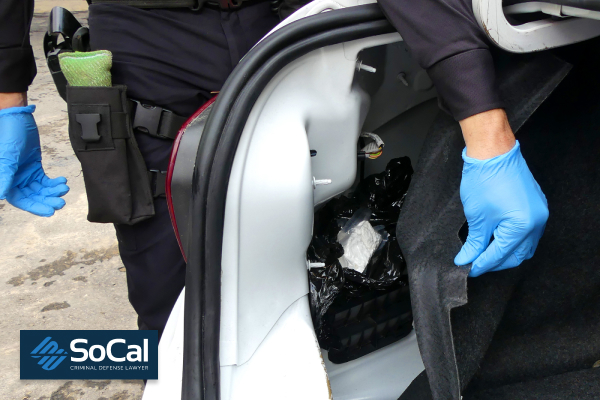
Interstate drug operations involve transporting drugs across state lines. Traffickers use highways, mail services, and hidden compartments in vehicles. These operations often involve large quantities of drugs. Law enforcement officials frequently target these operations to disrupt the flow of drugs.
Interstate drug operations require coordination and planning. Traffickers may use coded language and burner phones to avoid detection.
Law enforcement agencies use advanced surveillance and tracking techniques to catch traffickers. Being caught in an interstate operation can result in federal charges and severe penalties.
Local street-level distribution involves selling drugs directly to community users. This type of distribution is often more visible to the public and law enforcement. Dealers may use street corners, parks, and other public places to conduct transactions. The quantities involved are usually smaller but still significant.
Street-level distribution is often linked to violence and other crimes. Dealers may work for larger trafficking organizations, acting as the last link in the distribution chain.
Law enforcement agencies focus on these activities to reduce local drug problems. Facing charges for street-level distribution requires a strong defense strategy.
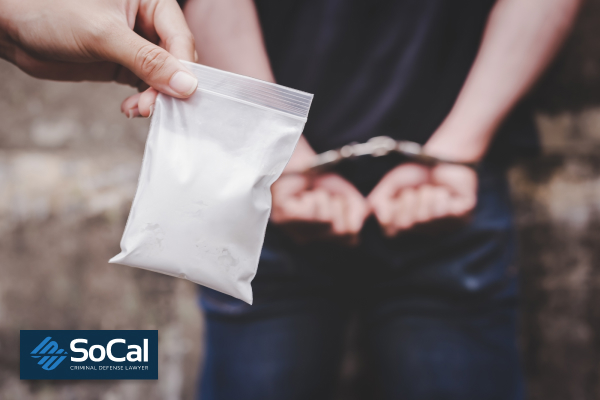
International smuggling involves bringing drugs into the United States from other countries. Drugs like cocaine and heroin often originate in South America and transit through other countries. Smugglers use boats, planes, and even submarines to transport drugs. These operations are highly organized and difficult to detect.
International smuggling is a major focus for the DEA and other law enforcement agencies. They work with international partners to track and intercept shipments.
Smugglers face severe penalties if caught, including long prison sentences. Defending against international smuggling charges requires knowledge of both U.S. and international law.
Pharmaceutical diversion involves the illegal distribution of prescription drugs. This can include doctors overprescribing medication or pharmacies selling drugs illegally. Prescription drugs like opioids are highly sought after on the illicit market. Diversion schemes can involve complex networks of individuals and organizations.
Pharmaceutical diversion is a growing problem in the United States. Law enforcement agencies are cracking down on illegal prescription drug sales.
Penalties for pharmaceutical diversion can be severe, including loss of medical licenses and imprisonment. Understanding the legal landscape of prescription drug laws is crucial for building a defense.
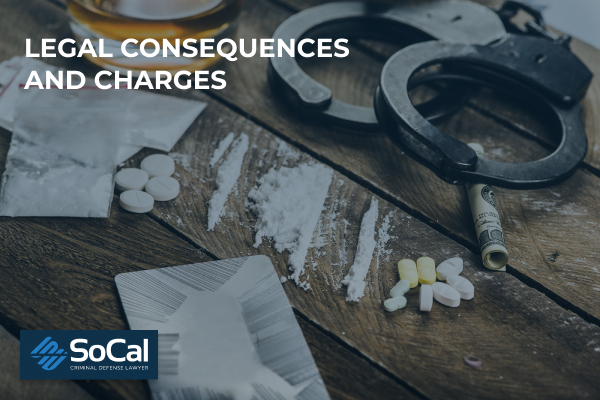
Drug trafficking charges carry severe legal consequences. Penalties often include long prison sentences, steep fines, and permanent criminal records. The severity of the penalties often depends on the type and quantity of drugs involved. Knowing the potential consequences can help you prepare for your defense.
Sentencing for drug trafficking varies based on the drug type and quantity. For example, a conviction under HS 11352 can lead to up to nine years in prison and a fine of up to $20,000.
Do not forget that you could also face added charges in federal court. The more drugs involved, the harsher the penalties. Cocaine seizures and heroin seizures often lead to stiff prison terms.
Judges in state and federal courts consider several factors when determining sentences. These include your criminal history, the specifics of the trafficking operation, and whether minors were involved. Understanding these factors can help your attorney advocate for a more lenient sentence. Having a knowledgeable lawyer is essential in these cases.
Using minors in drug trafficking operations can lead to additional charges. These charges carry even harsher penalties to protect vulnerable populations. Traffickers who use weapons during their operations face enhanced sentences. The presence of firearms increases the danger and severity of the crime.
If drug trafficking results in fatalities, the penalties can be even more severe. This includes overdoses from the distributed drugs. Prosecutors will seek the maximum punishment in these cases. Understanding the potential additional charges can help you prepare your defense strategy.

Facing drug trafficking charges is serious and requires immediate legal assistance. Our experienced San Bernardino drug crimes attorney can start building your defense immediately. Early intervention can make a significant difference in the outcome of your case. We understand the legal system and how to navigate it effectively.
Having a skilled attorney by your side can help reduce stress and uncertainty. We will explain your rights and options clearly. Our goal is to protect your future and achieve the best possible outcome. Don't wait to seek legal help. The penalties for drug traffickers are stiff. Contact us for a free case consultation if you have been accused of drug smuggling.
Deciding whether to take a plea deal is a critical decision. Plea deals can result in reduced charges and lighter sentences. They provide a guaranteed outcome, avoiding the uncertainty of a trial. However, it's important to weigh the pros and cons carefully.
Going to trial can be risky but also offers the chance for acquittal. A trial might be the best option if the prosecution's case is weak. Trials can be lengthy and stressful, but they provide an opportunity to challenge the evidence. Your attorney will help you understand the risks and benefits of going to trial.
Getting a case dismissed is possible but challenging. Your attorney will look for any procedural errors or rights violations. If the prosecution's evidence weakens, they may be more willing to drop the charges. Dismissal is the best outcome, but it requires a strong defense strategy.

Facing drug trafficking charges can be overwhelming. At SoCal Criminal Defense Lawyer, we offer a free case consultation to discuss your situation. We will review the details of your case and explain your options. Our goal is to provide you with the best defense possible. Crimes related to illicit drugs are always prosecuted vigorously.
Be sure to get the legal help you need. Contact us today to schedule your free consultation. Let our experienced attorney fight for your rights and protect your future.
Search our site

Follow Us
"*" indicates required fields